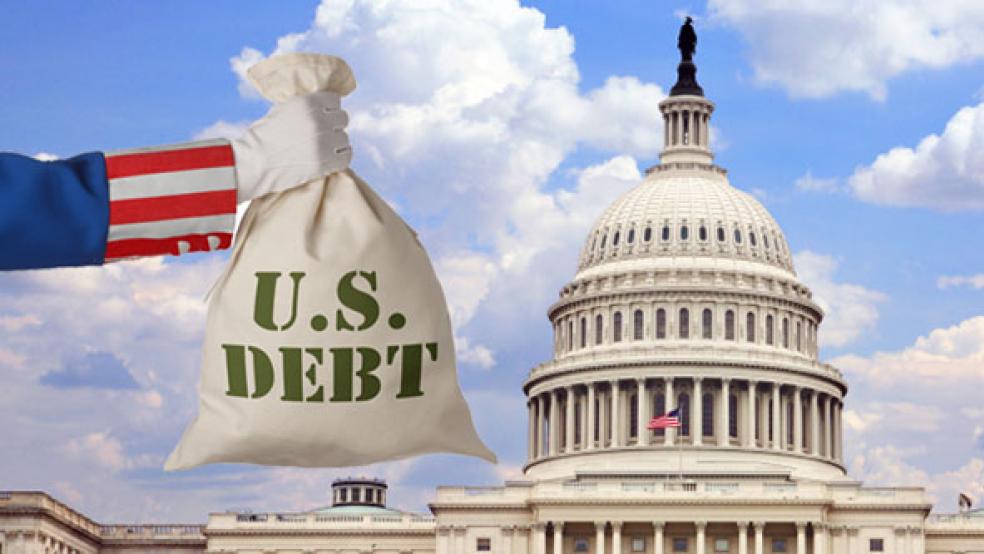We told you last week about a new paper from economist Olivier Blanchard that caused a stir by suggesting that government debt may be less problematic than many experts have believed. Blanchard found that in some circumstances – most importantly, when interest rates are low – public debt can be sustained by the government without raising taxes and without reducing overall economic output.
Some liberal economists, notably including Paul Krugman, embraced Blanchard’s analysis, seeing it as offering support for increased spending on social welfare programs that have long been opposed on fiscal grounds.
However, the fiscal hawks at the Committee for a Responsible Federal Budget have a different take on the analysis. In a memo released Wednesday, CRFB said that while Blanchard’s paper demonstrates that small deficits are sustainable in a low-interest-rate environment, the U.S. currently faces large deficits that are structural in nature, with expenditures set to outpace revenues for years to come.
To become sustainable in the manner Blanchard describes, those deficits would have to be reduced substantially – to the tune of roughly $5.5 trillion over 10 years, achieved through some combination of tax hikes and spending cuts. On an annual basis, the deficit would need to fall below $400 billion, CRFB said. Given the $1 trillion deficits the U.S. currently facing, that means cutting outlays or raising taxes by $600 billion a year, just to achieve a “sustainable” level of debt.
The bottom line: Hawks like those at the CRFB insist that rising debt is a serious threat, one that will produce “slower income growth, higher interest payments, reduced fiscal space, increased interest rates, and a small but increasing risk of fiscal crisis.” But there are challenges to this view, with some economists coming to believe that the U.S has fewer budget constraints than previously thought (see this piece in The Economist for a recent discussion). Blanchard himself said that his paper was not intended to argue for or against more government debt, but rather to enhance our understanding of the dynamics involved: "My purpose in the lecture is not to argue for more public debt, especially in the current political environment,” Blanchard wrote. “It is to have a richer discussion of the costs of debt and of fiscal policy than is currently the case."




